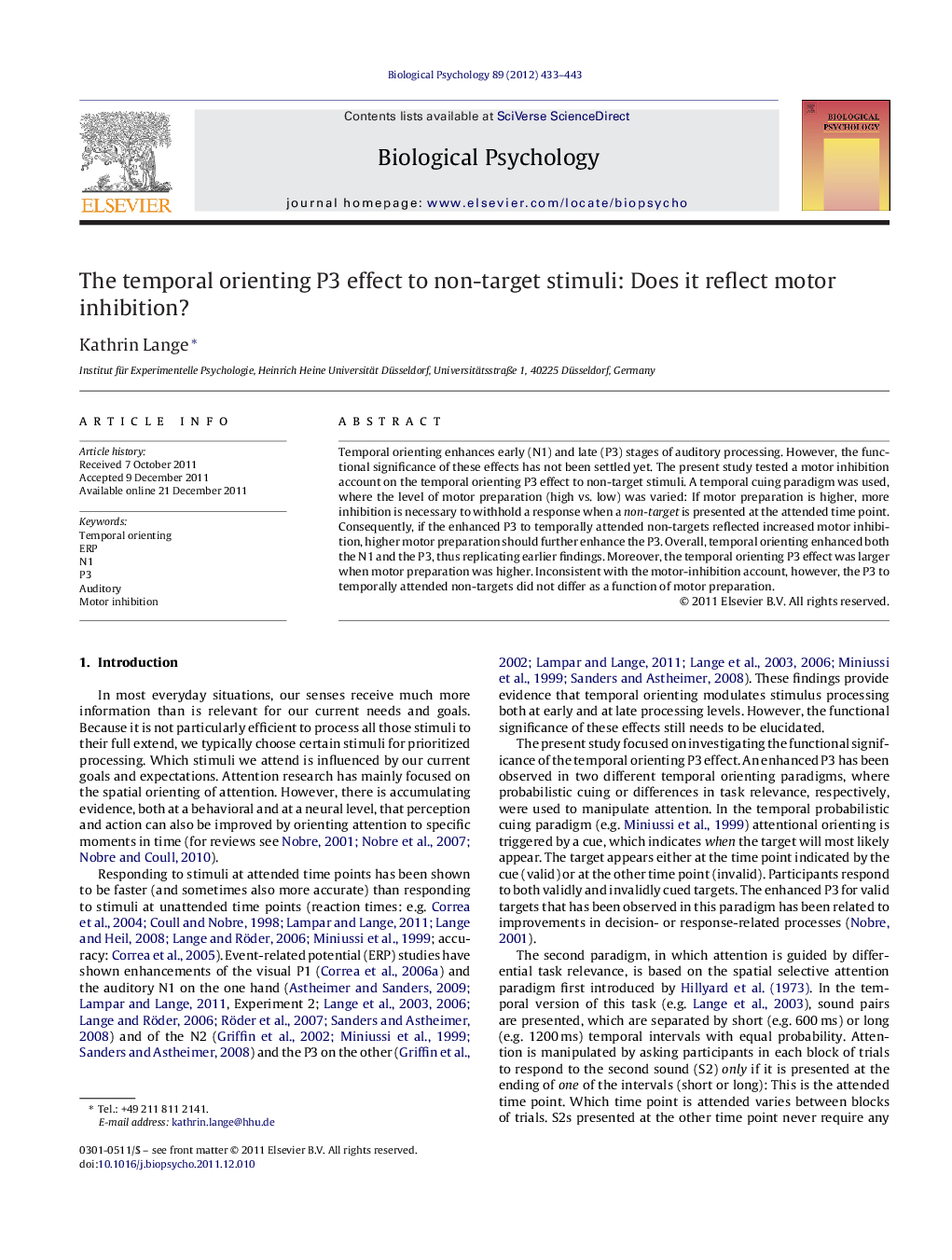| Article ID | Journal | Published Year | Pages | File Type |
|---|---|---|---|---|
| 921093 | Biological Psychology | 2012 | 11 Pages |
Temporal orienting enhances early (N1) and late (P3) stages of auditory processing. However, the functional significance of these effects has not been settled yet. The present study tested a motor inhibition account on the temporal orienting P3 effect to non-target stimuli. A temporal cuing paradigm was used, where the level of motor preparation (high vs. low) was varied: If motor preparation is higher, more inhibition is necessary to withhold a response when a non-target is presented at the attended time point. Consequently, if the enhanced P3 to temporally attended non-targets reflected increased motor inhibition, higher motor preparation should further enhance the P3. Overall, temporal orienting enhanced both the N1 and the P3, thus replicating earlier findings. Moreover, the temporal orienting P3 effect was larger when motor preparation was higher. Inconsistent with the motor-inhibition account, however, the P3 to temporally attended non-targets did not differ as a function of motor preparation.
► The temporal orienting P3 effect may reflect motor inhibition for attended stimuli. ► We thus varied the degree of advance motor activation in a temporal orienting task. ► Stronger motor activation did not increase P3 amplitudes for attended non-targets. ► These findings are inconsistent with the motor inhibition account.
